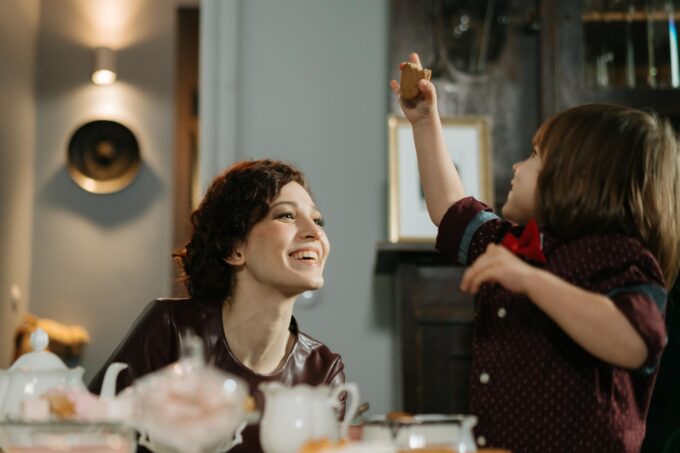
Key Takeaways:
- Creating a supportive environment is key to a successful au pair experience.
- Clear, compassionate communication helps au pairs feel valued and understood.
- Recognizing and celebrating cultural diversity enriches the family-au pair relationship.
- Providing personal space and encouraging independence fosters trust and respect.
- Building a lasting relationship with your au pair can lead to a deeply rewarding cultural exchange for your family.
Table of Contents:
- Understanding the Au Pair Experience
- Setting Clear Expectations
- Fostering Open Communication
- Creating a Welcoming Space
- Encouraging Cultural Exchange
- Balancing Integration and Independence
- Addressing Homesickness
- Ensuring Legal and Financial Clarity
- Offering Support and Resources
- Building a Lasting Relationship
Understanding the Au Pair Experience
The decision to host an au pair offers a unique opportunity for cultural exchange and provides valuable support in caring for children. However, it is crucial to recognize the challenges that au pairs might face when adjusting to life away from their home country. This transition period involves adapting to new cultural norms, family dynamics, and personal responsibilities, which can be daunting. Displaying empathy, warmth, and patience is essential in helping au pairs navigate these changes. As families find an au pair, they embark on this journey together, learning and growing alongside one another. The tone for a successful placement is set by how welcome the au pair feels upon arrival and how well they are integrated into the household.
Setting Clear Expectations
To ensure a harmonious living arrangement, setting clear and realistic expectations with your au pair from the start is vital. This involves an honest conversation about work schedules, child-rearing philosophies, household responsibilities, and personal boundaries. Establishing such guidelines isn’t just about maintaining order but also about aligning principles and standards. This conversation should be devoid of ambiguity, ideally leading to a written agreement. Regularly revisiting this document can help adapt expectations as the relationship between your family and the au pair evolves. Transparency in this aspect lays the groundwork for a trustworthy and respectful relationship.
Fostering Open Communication
Creating channels for open, honest communication is necessary for a positive living and working relationship with an au pair. This involves daily conversations beyond mere pleasantries, delving into how they adjust to life with their family and within a new culture. Keep lines of communication open for them to express any concerns or uncertainties. Actively listen, show understanding, and take action when appropriate. Scheduled, structured meetings can effectively discuss progress, address any issues, and complement what is going well, treating your au pair with the respect and kindness they deserve.
Creating a Welcoming Space
Respect for personal space can significantly influence an au pair’s comfort and satisfaction with their living situation. It provides them with a clean, comfortable, and personalized private room that shows that you care about their well-being. Please encourage them to decorate and arrange their room to their taste and offer to provide items that might make them feel more at home, such as picture frames, plants, or books—ensuring that they have somewhere to retreat to for solace and rest helps to maintain their mental and emotional health.
Encouraging Cultural Exchange
Au pairs bring a wealth of cultural knowledge that can enhance the cultural literacy of your family. Support your au pair in sharing their heritage—cooking a traditional meal, sharing customary tales, or teaching their native language to your children. Such interactions foster a deeper connection, improve cultural understanding, and can be incredibly enriching for all involved. In showing interest and enthusiasm in their culture, you validate the au pair’s background and honor the diversity they bring into your home.
Balancing Integration and Independence
While it’s important for au pairs to immerse themselves in your family’s lifestyle and routines, it’s equally important to encourage their individuality and independence. Providing opportunities for your au pair to pursue personal interests, make friends, and explore their surroundings helps maintain a healthy balance. This balance supports their sense of self and gives them a reprieve from their duties, which can lead to a more fulfilled and motivated au pair. Show support for their adventures and allow them to be autonomous within their responsibilities to your family.
Addressing Homesickness
Homesickness is a natural reaction to being in a foreign environment for an extended period. Help your au pair combat loneliness or isolation by creating traditions that honor their background, like celebrating national holidays or setting up video calls with their family on important occasions. Introducing them to local expat communities where they can meet others who share similar experiences can also provide comfort and a sense of belonging, easing their adjustment to a new home and culture.
Ensuring Legal and Financial Clarity
Legality and transparency in financial matters are paramount in an au pair arrangement. Sorting out the necessary work permits, visas, and insurance beforehand demonstrates your commitment to their legal well-being. Be clear about stipends, any extra compensation for additional duties, and the provision of room and board. This information should be explicitly covered in the contract, setting explicit expectations and leaving no room for misunderstanding, ensuring that both sides feel secure in the financial arrangement.
Offering Support and Resources
As part of the acculturation process, providing your au pair with resources that help them navigate their new environment is invaluable. Start with a comprehensive orientation about the locality, including how to use public transportation systems, where to find essential services, and how to seek medical care when needed. Assist with language learning, if necessary, by offering resources or enrolling them in language classes, as this will greatly aid them in feeling more at home and connected to their surroundings.
Building a Lasting Relationship
Au pairs often become integral parts of the families they join. To foster this deep connection, it is essential to go beyond the employer-employee dynamic and invest in the au pair’s personal growth and cultural integration. Show an active interest in their life, dreams, and aspirations, and be a pillar of support just as they are for your family. These genuine acts of kindness and engagement create a dynamic that ensures your au pair looks back on their time with your family fondly and serves as the foundation for a long-lasting bond across cultures.














